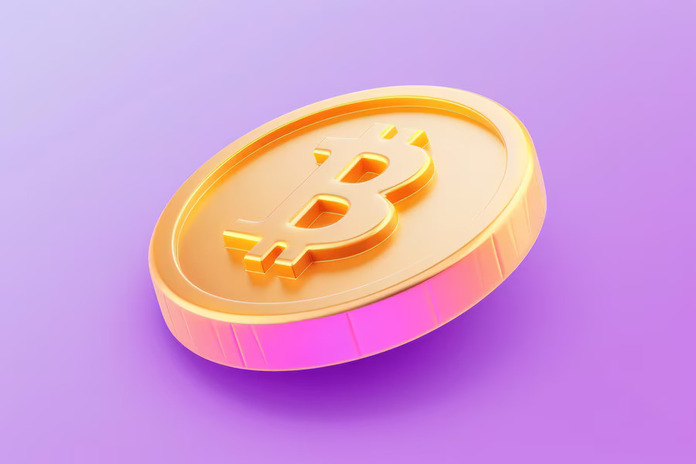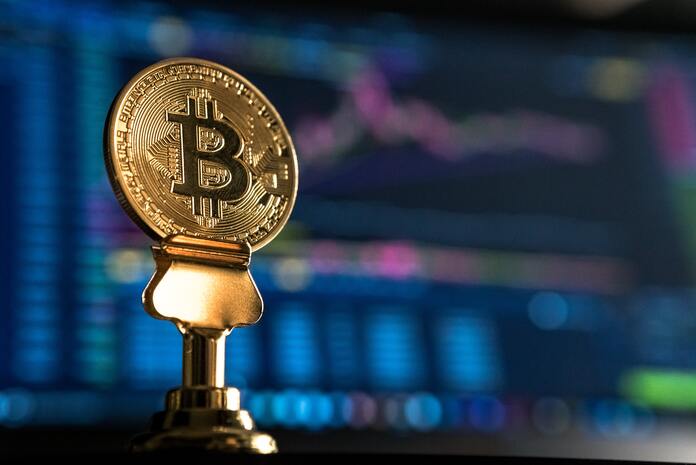Day: April 11, 2024
Shiba Inu Partners with CDSA to Tackle AI-Driven Challenges
This post was originally published on this site

Shiba Inu, renowned for its innovative approach in the blockchain sphere, has made history as the first layer 2 blockchain to join forces with the Content Distribution and Security Association (CDSA) in a bid to revolutionize blockchain technology for content security and distribution, with a primary focus on the media and entertainment sector.
In collaboration with the Content Distribution and Security Association (CDSA), Shiba Inu aims to introduce and develop blockchain solutions tailored specifically for the media and entertainment industry, with a strong emphasis on enhancing security protocols and optimizing content distribution mechanisms.
The partnership between Shiba Inu and CDSA signifies a significant step towards leveraging blockchain technology to combat prevalent concerns within the AI sector, including the proliferation of deepfakes and plagiarism. By integrating blockchain solutions, Shiba Inu seeks to address these challenges and foster a more secure and transparent ecosystem for content creation and dissemination.
Shytoshi Kusama, the lead developer at Shiba Inu, expressed enthusiasm about the collaboration, highlighting the opportunity to contribute a unique blockchain perspective to CDSA’s initiatives. Kusama emphasized the importance of leveraging innovative technologies like blockchain and artificial intelligence to empower media and entertainment executives in navigating the rapidly evolving digital landscape.
According to Shiba Inu developers, blockchain technology holds immense potential in mitigating the risks associated with AI-driven technologies, particularly in safeguarding against unauthorized manipulation and ensuring the integrity of digital content. As AI models increasingly rely on publicly available data for training, the integration of blockchain solutions can offer enhanced security and traceability, thereby bolstering trust and accountability within the AI ecosystem.
Despite the broader market’s positive momentum, with SHIB tokens registering a modest 0.69% increase in the past 24 hours, Shiba Inu’s commitment to pioneering blockchain solutions for content security and distribution remains steadfast, underscoring its dedication to driving innovation and addressing critical industry challenges.
Featured Image: Freepik @ waycss5
Amid Global Market Pullback, Bitcoin Price Surges as ECB Maintains Steady Rates
This post was originally published on this site

Bitcoin’s price surged on Thursday following the European Central Bank’s (ECB) decision to maintain interest rates, marking the fifth consecutive meeting without a change in rates.
The largest cryptocurrency by market capitalization saw a 1.5% increase over the past 24 hours, reaching $69,607 at 11:16 a.m. ET, according to data from The Block’s Price Page. This uptick in Bitcoin’s value came amidst a broader pullback in global markets, with major equity indices experiencing declines.
Despite the Dow Jones Industrial Average falling for the fourth consecutive day and the S&P 500 and Nasdaq Composite also slipping, Bitcoin managed to defy the downward trend. In Europe, the regional Stoxx 600 index and London’s FTSE also recorded losses.
The ECB’s decision to keep interest rates unchanged at historic highs, with the key interest rate remaining at 4%, the main refinancing rate at 4.5%, and the marginal lending facility at 4.75%, contributed to Bitcoin’s positive momentum. The central bank emphasized the need for further evidence of sustained inflation convergence before considering a reduction in monetary policy restrictions.
Konstantin Veit, a Portfolio Manager at PIMCO, suggested the possibility of ECB rate cuts in June if incoming data aligns with projections outlined in March. Veit anticipates cautious rate reductions of 25 basis points once initiated, with market expectations adjusting to reflect potential reductions. However, Veit emphasized the presence of risks leaning towards fewer rate cuts, citing factors such as persistent services inflation, a resilient labor market, loose financial conditions, and ECB risk management considerations.
Featured Image: Freepik
Investor Sentiment Dims Amid Inflation Concerns
This post was originally published on this site

Bullish sentiment continues to decline among individual investors as inflation remains elevated. According to the American Association of Individual Investors (AAII) Sentiment survey, optimism about the stock market’s short-term outlook decreased for the second consecutive week. Currently, 43.4% of respondents express optimism, compared to 47.3% and 50% in the previous two weeks. Conversely, bearish sentiment rose to 24% from last week’s 22.2%. Neutral sentiments also increased to 32.5% this week, up from 30.5% the previous week.
The recent consumer inflation report, which exceeded economists’ expectations by climbing 0.4% in March, dampened hopes for near-term Federal Reserve rate cuts. Analyst James Kostohryz suggests that barring significant disruptions like a war or oil supply crisis, there’s little justification for rate cuts before October 2024. However, President Joe Biden maintains his prediction of Fed rate cuts by year-end.
Market futures for the Nasdaq, S&P, and Dow edged higher on Thursday despite recent declines. The S&P 500 (SP500) fell nearly 1% over the past week, while the Dow Jones Industrial Average (^DJI) declined over 1%, and the NASDAQ Composite Index dropped 0.6%. The NASDAQ 100 Index saw a decline of 0.8%.
In the cryptocurrency and commodities markets, Bitcoin USD (BTC-USD) rose 4% since last Thursday, while Gold increased by nearly 3%. Gold futures achieved another record high settlement on Tuesday before experiencing a slight pullback on Wednesday.
Featured Image: Freepik
BlackRock Nears Grayscale in Bitcoin ETF Race, Intensifying Competition
This post was originally published on this site

In the ongoing battle for dominance in the cryptocurrency investment landscape, BlackRock’s spot bitcoin exchange-traded fund (ETF) is making significant strides toward overtaking Grayscale as the largest crypto-based investment vehicle.
Three months since the inception of spot bitcoin ETF trading, BlackRock’s IBIT fund is steadily closing the gap on Grayscale’s fund in terms of assets under management (AUM). Trackinsight data compiled by The Block Data Dashboard reveals that as of Tuesday, BlackRock’s IBIT fund boasted $18.2 billion in AUM, compared to Grayscale’s $23.2 billion.
Despite Grayscale’s higher fees relative to its competitors, its GBTC fund has experienced consistent capital outflows since its launch in January. Two months ago, Grayscale’s fund held approximately $23.4 billion in AUM, whereas BlackRock’s stood at $4.4 billion, indicating a substantial narrowing of the gap in AUM between the two.
Grayscale’s ETF initially launched with nearly $30 billion in AUM, attributed to the conversion of its flagship fund. However, the declining AUM is partly attributed to Genesis selling GBTC shares, according to Eric Balchunas, senior ETF analyst at Bloomberg.
Furthermore, Grayscale’s fund has witnessed a gradual decline in trading volume market share, dropping from approximately 50% at the launch of spot bitcoin ETFs on January 11 to 23.5% as of Tuesday.
In contrast, BlackRock’s ETF has been gaining momentum, evidenced by its $128.7 million inflows on Tuesday, while Grayscale’s fund experienced $154.9 million in outflows.
Fidelity’s spot bitcoin ETF holds the third position in terms of trading volume market share and AUM, further intensifying the competition in the burgeoning cryptocurrency ETF market.
Featured Image: Freepik
Grayscale Bitcoin ETF Witnesses Historic Low Daily Outflow, Hits $18M
This post was originally published on this site

On Wednesday, Grayscale’s bitcoin (BTC) exchange-traded fund (ETF) witnessed an unprecedented daily outflow of approximately $18 million, marking a significant departure from its usual outflow patterns since its inception in January. Reports from Bitmex Research and Farside Investors revealed this record-low figure.
This notable development comes shortly after Grayscale CEO Michael Sonnenshein indicated that outflows from the Grayscale Bitcoin Trust (GBTC) are approaching an “equilibrium,” suggesting that the selling pressure associated with settlements of bankrupt crypto firms like FTX has largely subsided.
Analysts at Coinbase Institutional have speculated that the recent uptick in GBTC selling could be attributed, at least in part, to Genesis selling shares as part of its bankruptcy proceedings.
Since its launch, the GBTC product has witnessed a staggering $15 billion in bitcoin outflows and has experienced consistent outflows almost every week, contributing to downward pressure on the asset.
Furthermore, the ETF imposes the highest annual fees among its counterparts, standing at 1.5% of holdings, compared to rates as low as 0.19% for Franklin Templeton’s EZBC.
Despite these challenges, bitcoin continues to trade resiliently, hovering just above $70,600 during European morning hours, reflecting a 2.2% increase in the past 24 hours. The broader CoinDesk 20 index also saw a 1.7% rise.
Featured Image: Freepik
JPMorgan: Odds of Ether Spot ETF Approval in May Remain Below 50%
This post was originally published on this site

According to a recent report by JPMorgan (NYSE:JPM), the likelihood of approval for spot ether (ETH) exchange-traded funds (ETFs) in May remains uncertain, with no more than a 50% chance of approval. The report suggests that if the Securities and Exchange Commission (SEC) does not approve these products next month, litigation against the regulatory body is probable.
JPMorgan reaffirms its stance, initially expressed in January, that approval for spot ether ETFs is unlikely in the upcoming month. The SEC is expected to make final decisions on certain ETF applications by May 23, following its approval of spot bitcoin (BTC) ETFs earlier this year, sparking speculation about potential approval for ether ETFs.
Analysts at JPMorgan, led by Nikolaos Panigirtzoglou, anticipate potential litigation against the SEC if spot ether ETFs are not approved in May. They suggest that the SEC is likely to face legal challenges, similar to previous cases involving Grayscale and Ripple, and eventually approve spot ether ETFs, albeit not in May.
The report highlights one reason why the SEC might face difficulties in any potential litigation: the decreasing concentration in staking on the Ethereum network, which reduces the likelihood of Ether being classified as a security.
Additionally, JPMorgan points out in a recent report that the share of staked ether held by Lido has continued to decline, alleviating concerns about network concentration.
The investigation by the SEC into companies associated with the Ethereum Foundation aligns with JPMorgan’s cautious outlook, reinforcing the uncertainty surrounding spot ether ETF approval in May.
Featured Image: Freepik
Bitfinex Securities Unveils Tokenized Debt Initiative for Hilton Hotel Build in El Salvador
This post was originally published on this site

Bitfinex Securities El Salvador S.A. de C.V., a leading tokenized securities platform, is driving an innovative initiative to finance the construction of a Hampton by Hilton hotel complex at El Salvador International Airport through a tokenized debt issuance.
The token, dubbed HILSV, will be pegged to the U.S. dollar and tether (USDT) and will be issued on the Liquid Network, a bitcoin sidechain, as detailed in a recent press release.
This groundbreaking tokenized debt offering, marked by the launch of HILSV, signifies a significant milestone in the development of El Salvador’s capital markets. Bitfinex Securities has partnered with Inversiones Laguardia (HILSV), a reputable entity in El Salvador, to oversee the tokenized debt, with Ditobanx managing the tokenization and structuring of the transaction on the Liquid blockchain.
HILSV seeks to raise $6.25 million and will offer a 10% coupon over five years, with a minimum investment threshold of $1,000. Inversiones Laguardia S.A. de C.V. will facilitate the issuance of the tokenized debt.
The raised funds will be allocated towards the development of a 4,484-square-meter hotel complex, boasting 80 rooms, five commercial spaces, a swimming pool, restaurants, and various amenities across five levels. While Hilton Hotels is associated as a franchisor, it does not endorse any offering and bears no responsibility.
Despite Hilton’s limited involvement, the project is anticipated to create significant economic opportunities, with approximately 1,000 jobs during construction and up to 5,000 direct and indirect jobs upon operationalization.
Paolo Ardoinio, Bitfinex Securities CTO, hailed the launch of HILSV as a pivotal moment for El Salvador’s capital market, offering investors access to previously unavailable asset classes while enabling issuers to tap into new funding sources.
Roberto Laguardia, President of Inversiones Laguardia, emphasized the transformative impact of the project, leveraging digital asset laws to unlock capital markets and foster economic growth.
Bitfinex Securities made history in January by becoming the first regulated entity to secure a license for operation in El Salvador under the nation’s Digital Asset Securities Law. This landmark achievement aligns with the growing demand for regulated investment avenues, following the successful introduction of U.S. spot bitcoin exchange-traded funds.
Building on its momentum, Bitfinex Securities is set to unveil a series of financial asset issuances in the first half of this year, following the success of its tokenized bond offering in Kazakhstan.
El Salvador’s proactive stance on crypto adoption, including granting Bitcoin legal tender status and launching the “Adopting El Salvador Freedom Visa” program, further underscores its commitment to fostering innovation and financial inclusion.
Featured Image: Freepik @ starline
South Africa’s FSCA Grants License to Crypto Exchange Luno, Sets Precedent for Regulation
This post was originally published on this site

Cryptocurrency exchange Luno has become one of the inaugural firms to secure a license from South Africa’s Financial Services Conduct Authority (FSCA), solidifying its status as a recognized financial services provider within the country.
The granting of the financial services provider license to Luno comes in the wake of the FSCA’s classification of crypto assets as financial products under the Financial Advisory and Intermediary Services Act of 2002 (FAIS).
Expressing enthusiasm about this milestone, Christo de Wit, Luno’s South Africa country manager, underscored the significance of being the premier licensed crypto asset service provider in the nation. He emphasized Luno’s decade-long commitment to the crypto market and its dedication to ensuring compliance, safety, and security for its clientele.
Luno, initially launched in 2013, operates as a crypto exchange alongside offering a cryptocurrency investment app, extending its services to over 40 countries across Europe, Africa, Asia, and Australia.
The FSCA’s move to authorize operating licenses for 59 cryptocurrency exchanges signifies a broader regulatory framework taking shape. Out of over 300 South African crypto providers seeking permits, only 59 have met the FSCA’s criteria for approval. As per regulatory mandates, digital asset exchanges must obtain permits to conduct operations within the country.
In alignment with its stance on regulatory oversight, the FSCA had previously classified cryptocurrency assets as financial products in 2022, underscoring the necessity for regulation to safeguard financial consumers and combat illicit financial activities like money laundering and terrorism financing. Exchanges were given until November 30 to apply for licenses, failing which they risked enforcement actions.
The FSCA’s approach to regulating crypto assets, outlined in 2021, emphasizes a phased and structured integration into the South African regulatory landscape. With a surge in retail interest in crypto assets, the FSCA remains vigilant against instances of consumer abuse, fraud, and market misconduct, both domestically and internationally. Recent media reports have highlighted schemes exploiting crypto assets, further reinforcing the imperative for regulatory intervention to uphold market integrity.
Featured Image: Freepik
- 1
- 2











